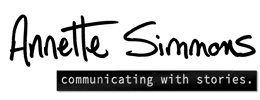- Information Manipulation Game

Tweak the numbers and you tweak the decision. Edit video and you edit context. Control the narrative and you control what information seems relevant. Truth is the first casualty whenever we assume that everyone manipulates information so we have to as well….since “that’s how the game is played.”
“Their response [when tweaking numbers] is that they’re doing what the system allows them to do. They feel, ‘I’m within the rules. I’m applying the rules to my benefit but I’m still playing within the rules.’”
When we characterize work, government, or other personal interactions as a competitive game we invoke game “rules.” As long as politics is considered a battleground, war rules apply and truth is the first casualty. Why not review the rules with Sun Tzu’s Art of War? The battle metaphor is a disaster for truth seekers. In a war/game, withholding information, promoting disinformation, suprise attack and active misdirection are not just acceptable but honored as good tactics. Whenever I facilitate high-level budget meetings, I always ask the question – how do you calculate your budget requests? Eventually I hear, “we figure how much we need and double it, or add 30%,” or whatever distortion each group’s norms justify. When I ask:
“How can we possibly make good decisions if our norm is to lie to each other?”
…it is usually the first time the group has asked themselves this question. The resulting conversations reveal the obstacles we impose on ourselves every time we characterize a budget meeting as a battle or a game. We play by rules that guarantee to distort our collective understanding of Big T Truths. Truth is the first casualty the minute we unconsciously expect there will be winners and losers, because it means that helping the other side tell the truth is the fastest track to becoming a loser.
Granted our judicial system wouldn’t work if lawyers were asked to collaborate – but there is no reason this adversarial approach should be our primary method for seeking Truth. While there are laws about sharing information in the judicial system, few lawyers call attention to evidence that helps the other side. An adversarial system for seeking truth incentivizes a battle mentality that rarely assembles various points of view into one big picture. We limit our truth to the one who wins, rather than the one who has the most integrity, experience, or good intentions.
“Another example is where data can be selectively manipulated. That’s a strong word for what I’m describing, but I’ve seen instances where selective use of data can basically get you to a different conclusion. They are protecting their own territory. The conclusion they are going for – let’s assume we are looking at a particular feature on a product – it’s a strong desire from one group in the company to have this feature. Another group…may not feel it’s that important…It becomes a judgment call. You are adding cost, adding weight. The one that wants the feature will tend to collect data and present data that would enhance the attractiveness of that feature. On the other hand, other people will be tweaking the numbers the other way.”
People (and now, algorithms) that assemble, interpret, format, and relay information into “meaningful” chunks edit out what seems unimportant (from their point of view) in order to feature what is important (from their point of view).
“So you’ve got a subculture that is trying to go for their optimum, which is counter to the big-picture good…What actually happens in the interchange from human to human is that they refuse to look at the big picture. They tell you flat out in a meeting… I’ve made the request that we look at the big picure and their response back [to me] is that they don’t get measured to do that, not paid to do what. ‘I’m only measured on meeting this objective and that’s what I’m talking to you about.'”
Any “fight” for truth means welcoming truths we dont like as well as the truths we do like. Denying unpleasant realities doesn’t make them untrue, it only distorts our ability to find solutions. That’s what I meant when I titled my last book “Whoever Tells the Best Story Wins.” I didn’t mean to suggest it was a guide to crush someone else’s truth with a truth you like better. I thought it would be obvious to those who study storytelling that the real wins are only found in Big T Truths. I guess I need to keep working on that.


6 thoughts on “Ten Games People Play to Control Truth (5)”
You hit the nail on the head with this one.
It reminds of an old joke about how to hire a risk analyst. The interviewee is asked, “What is two plus two?” The first candidate answers resolutely, “Four!” To which the hiring party says, “Thanks, we’ll call you if we need you.” The second candidate says sheepishly, “Six?”. To which the hiring party says, “Thanks, we’ll call you if we need you.” The third candidate wrings his hands and asks, “Did you have a number in mind?” And was hired on the spot.
There has to be a baseline of understanding between the parties about where the numbers come from, what they mean, and how they fit into the objectives of the activity. And it has to be open without recrimination for differences of understanding.
I believe the majority of problems in areas like this come from a lack of time and effort to (as Covey says) seek first to understand then seek to be understood. We seem to put artificial constraints on the time and means to get to a common understanding that makes it possible to get better agreement on the outcome.
I think this is because “management” involves three things – schedule, cost, and quality. Whereas leadership involves something more subtle that enables one to achieve those goals.
The problem with that “management” paradigm is that managers can specify any one or two of those parameters at their whim. But in doing so, the remainder of the items become fixed. You want nine babies, then if you have nine fertile women, you can have them, but it will take nine months. Even if you have ninety women, you just can’t get nine of them in less than nine months. You only have $10K for a car and you need it next week? You can’t get the new Mercedes Benz E Class under those conditions. Etc. etc. etc.
That “management” paradigm is incapable spending the time and resources to get to “truth” because it doesn’t fit the model. Leadership can (but is not guaranteed). Getting people to the same map (as Scott Peck described it) so they have a better chance to find the “truth” is the best you can do.
Great joke example – and it’s more true than ever. Scott Peck’s work on building community largely inspired my design for large group dialogue. Covey was a huge influence on me as well. Actually I came back to the USA from Australia with the express goal of working for Covey. I had met him in Australia in the 80s however his organization was primarily male back then. Anyway, I agree that any parameters used to measure winners and losers turns our interactions into game-based behaviors. Interesting point about leaving other parameters fixed. Do you think the chose one fix the other phenomena connects to my assertion that Big T Truths are the paradoxes of life: quality/quantity, safety/freedom and that if you choose one (safety) then the other freedom becomes fixed? I never thought of it as fixed but that makes sense. The parameter I think is a big problem is when a culture chooses speed in all cases even though slow is infinitely better for dialogue and big picture searches. Choose one and the other is sacrificed. Is that the same as what you are talking about?
Yes, ma’am. Choices invoke actions which invoke consequences. Arbitrary (or even informed) choices that predetermine an action inevitably influence the available possibilities remaining. With regard to paradoxes, they are difficult for people who only see the world as black or white. I think that is why many abhor getting to big T truth because they presuppose all outcomes are black or white. Being a math major, and a probability and statistics user, I am more comfortable with the concept of uncertainty which allows me to deal with paradox easier than others. The arbitrary choice for speed in decision making is one that affects the outcome of that process. It is a big burden IMO to getting people on the same map with the same destination in mind. I recall the story Peck talked about how he wanted to skip making rounds like the rest of the interns because he wanted to work on his client’s problems. The chief of residents politely told him his patients were important but that he was duty bound to make rounds like everyone else. Eventually he understood that HE was the one with a problem NOT the chief of residents. They weren’t on the same map so he wanted everyone else to change their maps to conform to his. Big learning experience for him and illustrative of the problem of getting people into a position where they can jointly search for a truth.
From a storyteller’s perspective, this game is the one that raises the harshest accusations against us: liars, manipulators, fabricators, etc. From the same storyteller’s perspective, it’s also the game that illuminates the organizational and business world in the most ridiculous light.
https://karlamclaren.com/2016/05/23/stress-is-a-weasel-word-and-maybe-thats-good-2/
List of weasel words